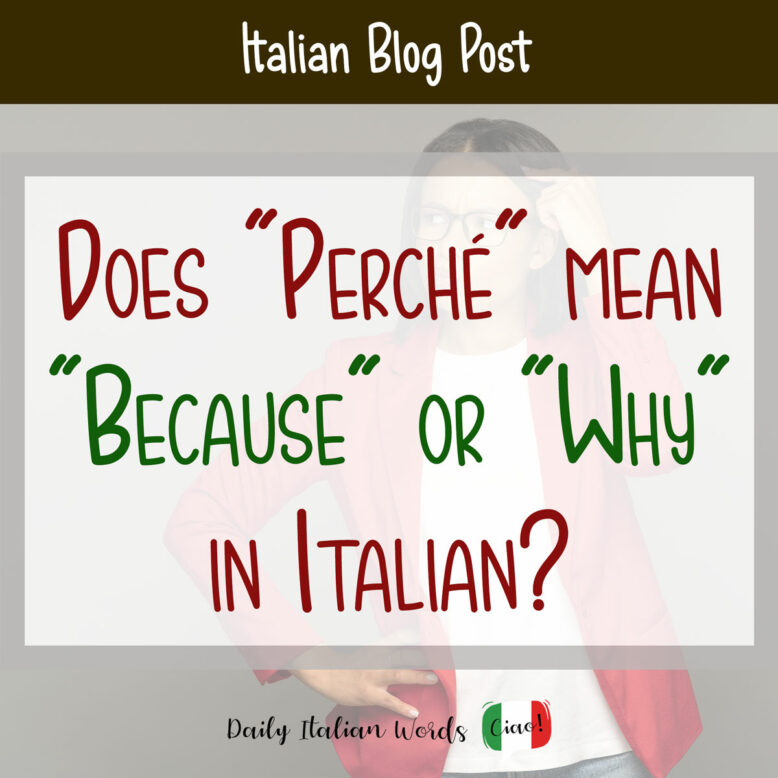We often get asked at Daily Italian Words: does the word perché mean because or why in Italian? The answer to that is: both!
perché

Perché is made up of two words: per (for) and che (that). It can function as an interrogative adverb, allowing you to ask the question why, or as a subordinating conjunction, linking a main clause to a subordinate clause, much like the English because.
Perché sei così felice oggi?
Why are you so happy today?
Rimango a casa perché ho tanti compiti da finire.
I’m staying at home today because I have lots of homework to finish.
Of course, it is possible to begin a sentence with the conjunction perché if the main clause is obvious from the context. In the second sentence below, for instance, there is no need to repeat the information non vado al lavoro perché…(I’m not going to work because…)
Perché non vai al lavoro oggi? – Perché non sto bene.
Why aren’t you going to work today? – Because I’m not well.

Note that “because of” cannot be translated using the conjunction perché. Instead, you need to use one of the following expressions:
- a causa di (due to)
- per causa di (due to)
- per via di (as a result of)
- per colpa di (for the fault of)
Luisa è arrivata in ritardo a causa di un incidente stradale.
Luisa was late because of a road accident.
Did you know that perché isn’t the only way to translate “because“? Below are a few other words that can replace perché, ranging from the most informal to formal.
Informal
dato che (seeing as, since)
visto che (seeing that)
per il semplice fatto che (due to the simple fact that)
siccome (since, given that)
poiché (since, seeing as)
Formal

To conclude, let’s look at a couple of very common synonyms for perché when used as an interrogative adverb: come mai (why) and per quale motivo/ragione (for what reason). The former is used very frequently, especially in colloquial speech, whereas the latter is a little more formal.
Come mai non me l’hai detto?
Why didn’t you tell me?
Per quale motivo hai deciso di studiare l’italiano?
Why did you decide to study Italian?
Heather Broster is a graduate with honours in linguistics from the University of Western Ontario. She is an aspiring polyglot, proficient in English and Italian, as well as Japanese, Welsh, and French to varying degrees of fluency. Originally from Toronto, Heather has resided in various countries, notably Italy for a period of six years. Her primary focus lies in the fields of language acquisition, education, and bilingual instruction.


